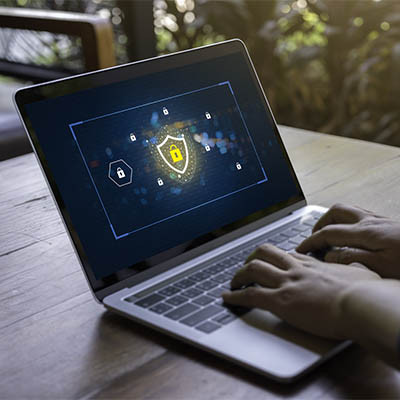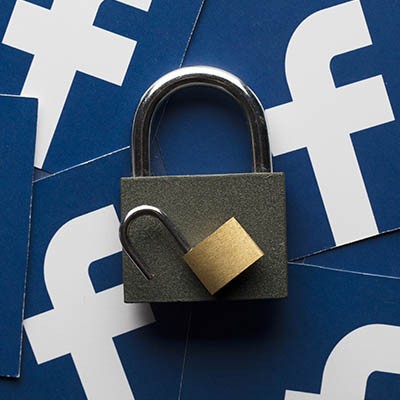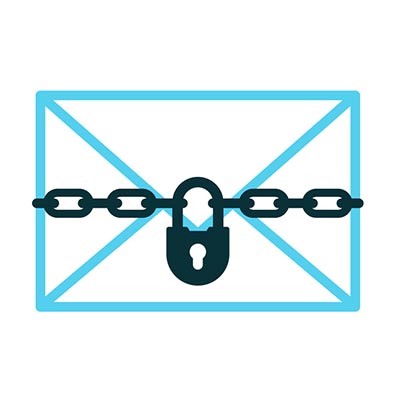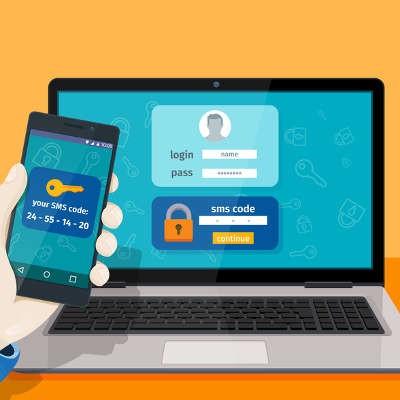k_Street Consulting, LLC Blog
As technology continues to gain prominence in healthcare, it plays an increasingly vital role. Advancements in technology have allowed the healthcare industry to stabilize costs, improve access, and personalize care delivery—objectives that were challenging in the past. These benefits come with a potential downside: data privacy issues, which are becoming more concerning as technology advances.
Facebook remains one of the most visited places on the Internet. Meta (the parent company to Facebook) also features WhatsApp and Instagram on their roster and has faced numerous security and privacy failings over the years. In this week’s blog, we’ll take a brief look at some of the most noteworthy.
Hackers are always on the lookout for personally identifiable information, or PII, as it’s an immensely lucrative resource. You’ll need to protect it if you want your business to continue operating safely and efficiently. Let’s go over what PII entails and what kinds of data you might find under this term.
Your business is likely subject to certain compliance laws and regulations depending on the type of data you collect from your clients or customers. Today, we want to emphasize the importance of your business considering regulation and compliance when managing its data and IT resources, as without doing so, you run considerable risk.
Ensuring the security of your data is extremely important. If you are a frequent reader of this blog, you know that any unauthorized access to sensitive information can result in severe consequences for your business. The problem is that today’s cybercriminal tactics have become increasingly sophisticated, posing a constant challenge to organizational data security. Today, we look at six things you can do to keep your data secure.
Every organization needs to have a certain level of cybersecurity protection in place. That includes firewalls, antivirus, VPNs, encryption, and centrally managed security policies. Even so, many modern cybercriminals know that businesses have these protections in place, and they are working out ways around them.
Let’s talk a little bit about deepfakes. If you aren’t aware of this technology, deepfakes are essentially synthetic media. Typically they come in the form of videos or images that use artificial intelligence (AI) to replace a person’s likeness with another’s. With deepfake technology, people can convince an audience that a person said something they didn’t say. This deliberate digital subterfuge can bring with it a whole lot of problems. This week we will outline a few of them.
Identity can be a complex thing to discuss, but in terms of security, it’s fairly straightforward. You either are who you say you are, or you’re not. With the metaverse taking off, individuals will need to be careful about how they are authenticating their accounts and identities, but what does this mean for businesses?
As modern warfare has evolved, so too has cyberwarfare. There is always a war occurring in cyberspace, where hackers attempt to outdo security researchers. One such example of hackers—often sponsored by government agencies—attempting to engage in cyberwarfare can be seen in the United States and Israeli technology sectors, which have become the target of password spraying.
While reading our blog and newsletters, you might come across the word “encrypted” quite a lot. Sometimes it’s in the form of ransomware encrypting data, while other times it might be regarding the encryption of passwords within a password manager. Regardless, one thing is certain: encryption is an important part of the modern workplace.
If a hacker were to find themselves on your network or within one of your accounts, would you be able to detect them and eliminate them? Today we want to share some of our best strategies for how you can identify the warning signs of a hacking attack, as well as how you should respond. This is particularly important for a workforce that is working remotely, so we hope you take these tips to heart.
Securing your digital platforms has to be a major point of emphasis for every business. For years, having a password was enough to keep unauthorized entities out of secured accounts. Those days are effectively over. With threats multiplying and getting more and more dangerous, companies have to do more to secure their IT. This month, we thought we’d take a look at some of the best practices in creating passwords and alternatives that can help you better protect your business’ technology.
Most companies have some sort of regulation they need to stay compliant to, and 2021 seems to be a landmark year. Over the past year, companies have had to deal with a growing remote workforce, end-of-life upgrades, the development of new privacy laws, as well as the existing regulatory landscape. Let’s take a look at why compliance is important for your business.
Have you ever been using your computer and you realize the operational indicator light next to your webcam is activated, only to realize that you never closed the video conference you were just on? Well, what would happen if you noticed it and you didn’t have that software up and running? If you are not an exhibitionist, it would likely freak you out to know that someone might be looking at you as you use your computer. Today, we will get into what to do to ensure that you aren’t being spied on through your webcam.
When the Internet was established, it was a marvel. Now people could move information across the world in a matter of seconds. This is why the term “world wide web” was coined. Nowadays, there are literally billions of users on the Internet and the rules have had to be changed. This has some online services in conflict with government regulations and has an impact on how users are able to use the Internet. Let’s look at a couple of examples.
Businesses that don’t see after their vulnerabilities are just asking to be breached. That’s the consensus view in the IT industry. It’s disconcerting, then, to consider how many businesses don’t actively assess their IT security, especially considering how much these platforms change from year-to-year. Today, we’ll briefly discuss what a security and compliance audit is, and why we think you need one.
With the holidays approaching, and with the global pandemic still underway, online shopping is going to be under even more demand than usual in 2020. With all of these transactions online, it would stand to reason that people would be more keen to follow best security practices than ever before. This week, we take a look at how people are staying secure online and whether or not the need for speed outweighs their security and privacy efforts.
Let’s face it, it is nearly impossible for the modern business to stay ahead of every cyberthreat. It is just too much to proactively ward against. Today’s best practices will try to keep your network from being breached and your data from being stolen, but they may just allow you to understand how your network was breached and how your data was stolen. Unfortunately, cybersecurity is not foolproof, but let’s look at a few strategies you can use to improve your chances of holding onto your data and keeping unwanted actors out of your network.
Security is unfortunately a major part of any business, and if there isn’t a diligent approach to the implementation of it, you can be left with huge holes in your network. Today, we thought we would discuss some of the best practices you can take to make sure that your organization’s security is in the best possible position to protect your digital resources.
Humans are social creatures, and as social creatures we create systems that separate us by our differences. IT professionals are known as such because they are experts at understanding and working with computers and information systems, just as Olympic gymnasts are regarded for their ability to compete in gymnastic events. Our differences are our identifiers. In fact, humans put labels on things to better identify them using even the most miniscule differences.
Facebook’s servers process a massive amount of data each day… which only makes sense, considering their 2.4 billion active users. Unfortunately, the social network has had some issues over the past few years with data privacy. Whether you use Facebook as a social networking tool for your personal life, your business, or both, you need to know how to best take control of your own privacy on the platform.
Wait! If you haven’t read part one of our Facebook privacy blog yet, you may want to do that before reading this one. If you’re ready, we’ll be taking an in-depth look at your Facebook settings to make sure that your account and its data are as secure as possible. If we’re being honest, protecting this kind of data hasn’t seemed to be one of the platform’s strong suits - and user privacy has been the star of many lists of concern.
Two billion users strong, Facebook is one of the Internet’s most popular websites… which has frequently put the tech giant in the spotlight when it comes to how secure the data you’ve entrusted to them (in addition to what they’ve collected) really is. Today, we’ll discuss how you can access the information Facebook has on you.
Data privacy is a huge issue right now, and with so many organizations possessing individual information, the issue isn’t going to be going away. Some of the biggest and most reputable organizations in business today have been breached in the past several years and it has put a new onus on individual data protection. Let's take a look at individual data privacy and what can be done to protect yourself online.
Passwords are hard to remember - there’s no denying that. However, there is also no denying how important it is to use different ones for each account, all sufficiently complex, and all the rest. The point is, a lot of people use bad password practices because (to be frank) good password practices are too intimidating. There has to be some kind of acceptable middle ground… right?
Data privacy is a serious issue in the world today, and the European Union’s General Data Protection Regulation, or GDPR, is perhaps the greatest example of how these issues are being addressed. Let’s take a look at how GDPR has shaped the computing world over the past year, as well as how events have exposed certain considerations regarding individual data privacy.
Do you ever think of your business as too small of a target to matter to hackers? Some organizations actually do believe this, and that notion is effectively a trap. The thing that all businesses need to keep in mind is that all organizations, regardless of which industry they fall into, as all companies have data that’s valuable to hackers. We’re here to prove it and ensure you know the best way to protect your data.
Does your organization take network security as seriously as it should? It’s easy to forget with today’s advanced security offerings that the online realm is a dangerous place, but the truth of the matter is that you can’t risk your business’ security--not even for a moment. We’ll walk you through how your organization can minimize threats to security, as well as give you a primer regarding what’s at stake.
With over 90 percent of people in the United States feeling as though their data is out of their hands, it should come as little surprise that many are looking towards the European Union’s General Data Protection Regulation as inspiration. However, how close is the United States to passing this kind of legislation… and how will smaller businesses fare if (or when) some is passed?
You hear about encryption being used all the time, almost to the point of it being synonymous with security, but what does it really mean to have encryption on your business’ data and devices? We’ll walk you through how encryption can help you in your day-to-day struggle to secure the integrity of your organization’s communication and infrastructure.
There’s an ongoing debate concerning whether the United States Constitution gives the American government the right to access data held on electronic devices by its citizens. In case they didn’t make themselves heard clearly enough, the director of the FBI, James Comey, has released a statement at Symantec’s Annual Government Symposium. You might not like his answer.
Security is a critical part of running your business, especially in a world where organizations require technology for most any task. In fact, some of the most dangerous threats are known to hide within a company’s network, waiting for any opportunity to strike. With the right preventative measures, you can keep your network safe from catching threats before they hit your network in the first place.
One of the main benefits of a small business is that it’s small. You can make decisions quickly regarding all sorts of matters. Your workforce isn’t nearly as large as other organizations, meaning that you’re a closer, tight-knit group. However, one of the misconceptions of small business is that they’re not as susceptible to hacking attacks, which can be a dangerous assumption to make.
Passwords are important for any online account (and for most accounts in general). Sometimes they might feel like inconveniences, but it’s crucial to remember that these passwords are often the first line of defense, if not the only line of defense, that stands between your data and hackers. We’ll discuss ways that you can augment password security with other powerful measures.
The Bureau of Justice estimated that five percent of the entire U.S. population were victimized by identity thieves, a total of 11.7 million people. While the methods of collecting the data that identity thieves need to commit their crime vary from dumpster diving for carelessly discarded documents, to email phishing scams, there is a particular target that can easily supply them with the data they will need: the workplace.
What have you watched on TV lately? Actually, never mind; if you don’t want to tell us, we can just ask Vizio. Relax--we’re not actually going through with this, but the fact remains that 11 million owners of Vizio televisions had their viewing habits tracked by the manufacturer. Were you one of them?
Full disclosure: we don’t recommend doing anything important, or really anything at all, on a public computer. However, we understand that sometimes life works out in an unideal fashion, and sometimes you can be stuck doing something you shouldn’t, and otherwise wouldn’t. Even in these cases, there are steps you can take to preserve your security.
If you’re a Samsung smartphone user, have you ever seen a little eyeball symbol appear at the top of the screen? You might notice that it will show up for a minute, and then disappear again. Since this kind of activity usually makes users question what’s going on with their device, let’s get down to the bottom of this weird occurrence.
While it’s a security best practice to keep strangers off of your Facebook account, you might feel that it’s understandable to accept an unknown request for the sake of networking or otherwise. This isn’t the ideal way to approach Facebook, but you do have a unique opportunity to allow users to view your profile and follow your public posts, without the need to accept a friend request.
The holidays are approaching, whether we are ready for them or not. With the holidays comes time off, which means that it’s awfully easy to fall behind post-vacation. Another concern is the amount of identity theft and credit card fraud that comes about during this time of year. We’ll discuss some of the many ways that your organization can take advantage of technology this holiday season without putting yourself in harm’s way.
Wouldn’t it be great if you could take advantage of a built-in security feature that could lock down your Google services in the event of a potential data breach? Thanks to attacks on high-profile users, Google is now offering this service to those who are at considerable risk of having their accounts hacked. This type of advanced service, called the Advanced Protection Program, is only available to a select few, but it promises to assist in the challenge of protecting sensitive information.
Data breaches are so common nowadays that you’re lucky not to see one in the breaking news section of any news outlet. How is your business preparing for the inevitable data breach of intellectual properly and sensitive information? You need to start considering preventative measures, like two-factor authentication, to keep your data secure.
The term social engineering may not seem nearly as intimidating as other cybersecurity terms like ransomware or denial of service. Don’t be deceived! Some of the biggest threats to your company’s data and network security use social engineering to manipulate targets into taking a specific action - like disclosing personal information that can be stolen and exploited.
These days everyone has a smartphone; and, they can do some pretty incredible things. One place that the average smartphone may seem to be a little loose is in the arena of data security. Today’s smartphones do, in fact, come with encryption by default, so there is some semblance of device security on every device. What does this mean? We’ll break it down.
Passwords are still an incredibly valuable part of security, but it’s becoming quite difficult to maximize network security through passwords alone. Even if you somehow manage to sell the idea of network security to your staff, whether or not they follow through is another thing entirely. It’s critical that you make it as easy as possible for your employees to stay secure, and that’s where scannable QR codes come in.
If your business hasn’t dealt with a phishing attack before, you need to understand what kind of threat they present. To steal credentials, personally identifiable information, or other data, hackers will target people by creating messages that entice users to interact with them. This then leads to malware or spyware being deployed on the computing system. Once hackers are in, they can look around and take whatever they are looking for.
There will always be standards that must be upheld in regard to compliance and regulations, regardless of which industry your organization falls into. Still, considering the results of the 2016 State of Compliance survey, you’ll be shocked to hear that there are countless businesses out there that don’t understand what’s required of them.
If your business is using the latest technology solutions, then you know how advantageous they are. Yet, a step in the right direction can often feel like two steps backward. This sometimes happens when businesses implement new technology solutions without considering the ramifications that they may cause for their other technology. Here are two ways that your new technology might be holding your organization back, or even putting your network at risk.
While the explosion of technological advancement has been great for business, it’s become more challenging than ever before to keep sensitive information safe--even if all you use is an Internet connection. Even small healthcare offices are feeling the effects of this proliferation of threats and malware as they struggle to keep their organizations secure and compliant with government agencies.
Regardless of your security protocol, there will always be threats. One of the most often forgotten outlets for attacks comes from insider threats. Sometimes these threats may be from angry employees wanting to sink your business, but more often than not, those behind insider threats don’t have malicious intentions. Still, it’s best to cover your bases and ensure that your organization isn’t at risk from careless or negligent employees.
Windows is perhaps the most common workplace computing tool, and hackers have been trying for decades to uncover holes in its security. In some cases, like with unsupported operating systems, they’ve succeeded. However, Microsoft’s latest addition to their OS family, Windows 10, seems to have exceptionally potent built-in security measures, many of which have the hackers at the Black Hat conference scratching their heads and scrambling to find threats to talk about.
Payment via mobile devices is still a relatively new concept. With newer smartphones, it’s now easier than ever to pay your bills or send money on a whim. However, this also brings up an important topic; what’s the best way to handle mobile payments, and how can those who accept and process these payments ensure maximum security?
It’s clear that security professionals have waged war with hackers since the Internet’s inception, but NATO has reaffirmed that cybersecurity is not just a localized problem; it’s a nation-state-wide issue, and one that needs to be addressed. Just like land, air, and sea, cyberspace is now an operational domain, a place that can be considered a battlefield.
It all goes to show: don’t mess with the IRS. The prison system has two new residents, after Anthony Alika, 42, and his wife Sonia, 27, were sentenced for filing fraudulent tax returns through the often-exploited “Get Transcript” site maintained by the Internal Revenue Service. In addition to their incarceration, the Alikas will each be responsible to pay restitution to the IRS.
“What’re you in for?” a prison inmate asks. “I shared my Netflix password with my sister,” you say. This conversation might be absurd, but according to a recent ruling in accordance with the Computer Fraud and Abuse Act, it’s one that could actually happen. Now, sharing your Netflix password to let someone catch up on their favorite TV show can be considered a federal offense.
 Are you familiar with the protections in place that ensure that your digital communications remain private? What’s keeping an entity like the government from going through your emails? In the United States, the government uses a loophole in an outdated law to access the digital information they want from its citizens. If you’re concerned about privacy, you need to be informed about such laws and loopholes.
Are you familiar with the protections in place that ensure that your digital communications remain private? What’s keeping an entity like the government from going through your emails? In the United States, the government uses a loophole in an outdated law to access the digital information they want from its citizens. If you’re concerned about privacy, you need to be informed about such laws and loopholes.
 With approximately 5.5 million new devices being connected to the Internet everyday, the Internet of Things presents the biggest security challenge to date for IT professionals. Essentially, an IoT device that’s not secured can easily fall prey to hackers, and with so many different devices being connected, it’s easy to overlook a device or two, like your security cameras.
With approximately 5.5 million new devices being connected to the Internet everyday, the Internet of Things presents the biggest security challenge to date for IT professionals. Essentially, an IoT device that’s not secured can easily fall prey to hackers, and with so many different devices being connected, it’s easy to overlook a device or two, like your security cameras.
 The fact that so many businesses are rushing to take advantage of two-factor authentication displays how the password has lost its edge as a security credential. Passwords simply aren’t good enough anymore, and hackers are always finding ways to crack even the most complex passwords. This is why many businesses are looking to improve security through alternative means.
The fact that so many businesses are rushing to take advantage of two-factor authentication displays how the password has lost its edge as a security credential. Passwords simply aren’t good enough anymore, and hackers are always finding ways to crack even the most complex passwords. This is why many businesses are looking to improve security through alternative means.
 We’ve all been in a situation where you’re asked by someone if they can use your personal computer for whatever reason; checking their social media, email, or just browsing the Internet. Some people, however, also want to protect their privacy, and allowing relatives to use your own account can become problematic. A quality solution to this issue is to create a guest account.
We’ve all been in a situation where you’re asked by someone if they can use your personal computer for whatever reason; checking their social media, email, or just browsing the Internet. Some people, however, also want to protect their privacy, and allowing relatives to use your own account can become problematic. A quality solution to this issue is to create a guest account.
 Your network’s firewall plays a vital role in protecting your business’s mission-critical assets from external threats. As one of the most basic PC security layers, it would be silly to function without one. Granted, having a firewall and knowing what it protects you from are two different things entirely. To maximize your business’s data security infrastructure, you should pay close attention to how each individual part of your security solution works, including your firewall.
Your network’s firewall plays a vital role in protecting your business’s mission-critical assets from external threats. As one of the most basic PC security layers, it would be silly to function without one. Granted, having a firewall and knowing what it protects you from are two different things entirely. To maximize your business’s data security infrastructure, you should pay close attention to how each individual part of your security solution works, including your firewall.
 Password security is quite the conundrum. We want our passwords to be easy to remember, but the problem is that passwords that are easy to remember are often simple and insecure. Therefore, it becomes a best practice to use complicated passwords with both upper and lower-case letters, numbers, and symbols to compensate. The “passpoem” might resolve this issue in the most obvious way.
Password security is quite the conundrum. We want our passwords to be easy to remember, but the problem is that passwords that are easy to remember are often simple and insecure. Therefore, it becomes a best practice to use complicated passwords with both upper and lower-case letters, numbers, and symbols to compensate. The “passpoem” might resolve this issue in the most obvious way.
 Attention people of the Internet, October is Cyber Security Month! Make sure that you share this information with everyone on the Internet that you know. In a situation like this, sharing content with everyone to raise awareness of a worthy cause is perfectly fine. Although, what’s not alright is the sharing of your personal information online.
Attention people of the Internet, October is Cyber Security Month! Make sure that you share this information with everyone on the Internet that you know. In a situation like this, sharing content with everyone to raise awareness of a worthy cause is perfectly fine. Although, what’s not alright is the sharing of your personal information online.
 With social media playing such an important role in everyone’s day-to-day lives, one has to wonder to what degree this affects the security of online accounts and profiles. Social media might have revolutionized the way we communicate with others, but it’s also revolutionized the way that hackers stalk their victims. How vulnerable are you and the people you love when it comes to your Facebook settings?
With social media playing such an important role in everyone’s day-to-day lives, one has to wonder to what degree this affects the security of online accounts and profiles. Social media might have revolutionized the way we communicate with others, but it’s also revolutionized the way that hackers stalk their victims. How vulnerable are you and the people you love when it comes to your Facebook settings?
 Mobile devices are one of the hottest items for thieves to target. According to reports from Consumer Reports and LoJack, 2013 saw the theft of two million laptops and three million handsets. What this means for you is that having your mobile device stolen is probably a lot more likely than you would think.
Mobile devices are one of the hottest items for thieves to target. According to reports from Consumer Reports and LoJack, 2013 saw the theft of two million laptops and three million handsets. What this means for you is that having your mobile device stolen is probably a lot more likely than you would think.
 The Internet can be a dangerous place. Sometimes you want to keep your identity a secret on the web. Now, your reasons for doing so aren’t any of our business, but you should know that there are several ways to access this secretive function in Google Chrome. Here are three ways you can take advantage of Google Chrome's Incognito mode to browse the web in an anonymous fashion.
The Internet can be a dangerous place. Sometimes you want to keep your identity a secret on the web. Now, your reasons for doing so aren’t any of our business, but you should know that there are several ways to access this secretive function in Google Chrome. Here are three ways you can take advantage of Google Chrome's Incognito mode to browse the web in an anonymous fashion.
 It would be prudent to begin by saying that Windows 10 is far and away the most refined version of Windows ever created. In a lot of ways, it's like using a souped-up version of Windows 7, with a sprinkling of Windows 8/8.1 metro on top. Beneath the surface, however, is a vast information-collecting infrastructure that has many users left worried about their privacy. There are even conspiracy theories suggesting that Windows 10 is a vessel used by the NSA in order to collect all the information on every user.
It would be prudent to begin by saying that Windows 10 is far and away the most refined version of Windows ever created. In a lot of ways, it's like using a souped-up version of Windows 7, with a sprinkling of Windows 8/8.1 metro on top. Beneath the surface, however, is a vast information-collecting infrastructure that has many users left worried about their privacy. There are even conspiracy theories suggesting that Windows 10 is a vessel used by the NSA in order to collect all the information on every user.
 As a business owner, you understand that there are always criminals on the lookout waiting to take advantage of the slightest crack in your defenses. They want to steal from you and see you fail. Cyber security is one of the most important avenues of defense your business should take advantage of, especially considering the fact that most threats to your organization aren’t apparent until it’s too late.
As a business owner, you understand that there are always criminals on the lookout waiting to take advantage of the slightest crack in your defenses. They want to steal from you and see you fail. Cyber security is one of the most important avenues of defense your business should take advantage of, especially considering the fact that most threats to your organization aren’t apparent until it’s too late.
 Any user of technology knows that it’s important to optimize security on all fronts of your business. The only problem with this is that passwords aren’t as secure as they used to be. Many businesses have moved in the direction of two-factor authentication, which requires a secondary credential in order to access an account. Did you know there’s a security method that uses your mouse’s behavior to authorize your login?
Any user of technology knows that it’s important to optimize security on all fronts of your business. The only problem with this is that passwords aren’t as secure as they used to be. Many businesses have moved in the direction of two-factor authentication, which requires a secondary credential in order to access an account. Did you know there’s a security method that uses your mouse’s behavior to authorize your login?
 With all the hacking attacks we’ve seen in the news, it’s painfully obvious that using passwords just isn't enough to protect our information. We now have more security measures available than ever before. One of the more unique and effective solutions to have surfaced is Facelock, a clever solution that grants access based on how well you can identify images of your friends and family.
With all the hacking attacks we’ve seen in the news, it’s painfully obvious that using passwords just isn't enough to protect our information. We now have more security measures available than ever before. One of the more unique and effective solutions to have surfaced is Facelock, a clever solution that grants access based on how well you can identify images of your friends and family.
 You might be aware that some websites collect personal data from you depending on your mobile device’s location, your browsing history, and several other factors. This information is generally used for marketing, but it could have unforeseen effects on the way you browse the Internet. It can be fairly revealing about your personality, or possibly even incriminating. Therefore, you should be aware of how this personal information is gathered from you without you even knowing it.
You might be aware that some websites collect personal data from you depending on your mobile device’s location, your browsing history, and several other factors. This information is generally used for marketing, but it could have unforeseen effects on the way you browse the Internet. It can be fairly revealing about your personality, or possibly even incriminating. Therefore, you should be aware of how this personal information is gathered from you without you even knowing it.
 Wearable technology is still emerging, but a much different type of smart tech is coming soon. At the Kaspersky Labs Security Analyst Summit, the question of whether or not embedding technology in the human body is a viable concept was discussed in detail. This is supposedly the future of smart technology.
Wearable technology is still emerging, but a much different type of smart tech is coming soon. At the Kaspersky Labs Security Analyst Summit, the question of whether or not embedding technology in the human body is a viable concept was discussed in detail. This is supposedly the future of smart technology.
 One of the most publicized hacks we have seen is last December’s breach of Sony Pictures Entertainment by the Guardians of Peace. In addition to the hackers exposing Sony’s budget, plans for layoffs, and 3,800 SSNs, they leaked personal emails from company executives. This incident should make every business owner a little nervous.
One of the most publicized hacks we have seen is last December’s breach of Sony Pictures Entertainment by the Guardians of Peace. In addition to the hackers exposing Sony’s budget, plans for layoffs, and 3,800 SSNs, they leaked personal emails from company executives. This incident should make every business owner a little nervous.
 Is the password an outdated type of security measure? This question seems to be getting asked around quite a bit, especially with more powerful threats loose all over the Internet. Unfortunately, the fault in passwords generally lies in the fact that humans generally don’t pick passwords that are secure enough. Thanks to a new method called “spaced repetition,” it seems there might be some hope left for the password after all.
Is the password an outdated type of security measure? This question seems to be getting asked around quite a bit, especially with more powerful threats loose all over the Internet. Unfortunately, the fault in passwords generally lies in the fact that humans generally don’t pick passwords that are secure enough. Thanks to a new method called “spaced repetition,” it seems there might be some hope left for the password after all.
 For business professionals needing to access sensitive information, a public PC is never the first choice. We’ve all suspected it, and now there’s government-issued proof that hackers are targeting public computers. However, don’t be deterred from using public terminals; there are ways to get around hackers and their traps.
For business professionals needing to access sensitive information, a public PC is never the first choice. We’ve all suspected it, and now there’s government-issued proof that hackers are targeting public computers. However, don’t be deterred from using public terminals; there are ways to get around hackers and their traps.
 Malware often takes the form of certain unrecognizable web entities, which can make detecting threats tricky at times. New features in popular web browsers, most notably Google Chrome, are making progress toward identifying these threats before they cause your business harm. Chrome’s “Safe Browsing” feature is a good tool to augment your current network security practices.
Malware often takes the form of certain unrecognizable web entities, which can make detecting threats tricky at times. New features in popular web browsers, most notably Google Chrome, are making progress toward identifying these threats before they cause your business harm. Chrome’s “Safe Browsing” feature is a good tool to augment your current network security practices.
 Technology plays a crucial role in the healthcare industry, and thanks to the Health Information Technology for Economic and Clinical Health Act (HITECH), healthcare providers and insurance companies in the United States have to abide by a specific set of regulations when it comes to handling patient data.
Technology plays a crucial role in the healthcare industry, and thanks to the Health Information Technology for Economic and Clinical Health Act (HITECH), healthcare providers and insurance companies in the United States have to abide by a specific set of regulations when it comes to handling patient data.
 Passwords are slowly becoming obsolete in the face of more powerful security solutions. This is especially true considering how a hacker can input millions of characters every second in an attempt to break into your account and unleash who knows what into your business’s network. While using a password is still a good idea, professionals are working tirelessly to bring the new face of two-factor authentication to light.
Passwords are slowly becoming obsolete in the face of more powerful security solutions. This is especially true considering how a hacker can input millions of characters every second in an attempt to break into your account and unleash who knows what into your business’s network. While using a password is still a good idea, professionals are working tirelessly to bring the new face of two-factor authentication to light.
 We've got yet another major data breach to report that affects millions of users, this one of a very personal nature. This week, it was revealed that Chinese hackers compromised 4.5 million medical records from Community Health Systems, a hospital network with 206 facilities in the United States. Ask your doctor today if identity theft prevention is right for you.
We've got yet another major data breach to report that affects millions of users, this one of a very personal nature. This week, it was revealed that Chinese hackers compromised 4.5 million medical records from Community Health Systems, a hospital network with 206 facilities in the United States. Ask your doctor today if identity theft prevention is right for you.
 Yes, you read that title right. If your WiFi isn't protected, you can be hacked by the furry little creature that wanders around your backyard when you're not home. Coco, a Siamese cat from Washington, D.C., was able to discover dozens of weak or unprotected WiFi networks in his neighborhood with his high-tech collar.
Yes, you read that title right. If your WiFi isn't protected, you can be hacked by the furry little creature that wanders around your backyard when you're not home. Coco, a Siamese cat from Washington, D.C., was able to discover dozens of weak or unprotected WiFi networks in his neighborhood with his high-tech collar.
 All of the recent vulnerabilities and bugs over the past few months, such as Heartbleed, GameOver Zeus, and the zero-day Internet Explorer vulnerability have many people thinking - just how strong is antivirus in the face of such threats? Symantec told The Wall Street Journal their opinion on the subject: Antivirus is "dead."
All of the recent vulnerabilities and bugs over the past few months, such as Heartbleed, GameOver Zeus, and the zero-day Internet Explorer vulnerability have many people thinking - just how strong is antivirus in the face of such threats? Symantec told The Wall Street Journal their opinion on the subject: Antivirus is "dead."
 Smartphone users routinely cycle out their old device for a new one every two years or so. When it's time to upgrade, many users see an opportunity to sell their old phone for extra cash. However, a device that's improperly wiped of its data could lead to identity theft if the data is recovered by the new owner.
Smartphone users routinely cycle out their old device for a new one every two years or so. When it's time to upgrade, many users see an opportunity to sell their old phone for extra cash. However, a device that's improperly wiped of its data could lead to identity theft if the data is recovered by the new owner.
 On Saturday, July 21st 2014, the Hackers on Planet Earth (HOPE) conference took place in New York City. It's a place where hackers discuss ways to improve the society in which we live. One of the more controversial panelists, Edward Snowden, has suggested hackers pool their efforts into creating anti-surveillance technology to decrease government espionage.
On Saturday, July 21st 2014, the Hackers on Planet Earth (HOPE) conference took place in New York City. It's a place where hackers discuss ways to improve the society in which we live. One of the more controversial panelists, Edward Snowden, has suggested hackers pool their efforts into creating anti-surveillance technology to decrease government espionage.
 Today's home has all sorts of conveniences when it comes to security and wireless devices, such as mobile-controlled security systems, temperature gauges, and light switches. These devices can also be connected to the Internet for ease of access. You think it's safe behind passwords, firewalls, and security applications, but you're wrong. Anything that's connected is at risk - even baby monitors.
Today's home has all sorts of conveniences when it comes to security and wireless devices, such as mobile-controlled security systems, temperature gauges, and light switches. These devices can also be connected to the Internet for ease of access. You think it's safe behind passwords, firewalls, and security applications, but you're wrong. Anything that's connected is at risk - even baby monitors.
 Just like the dark waters of the benthic ocean trenches, the Internet is filled with wondrous creatures that have never been seen before. However, there are also rather ugly things lurking in the depths as well. No matter how deep you swim, there are always the deep sea phishermen that will try to rip you away from everything you hold dear – your personal and professional data.
Just like the dark waters of the benthic ocean trenches, the Internet is filled with wondrous creatures that have never been seen before. However, there are also rather ugly things lurking in the depths as well. No matter how deep you swim, there are always the deep sea phishermen that will try to rip you away from everything you hold dear – your personal and professional data.
 The Heartbleed bug, one of the nastiest deficiencies in Internet security to date, was found last week. More than two-thirds of the Internet's secure information could have been leaked from websites utilizing the OpenSSL cryptographic library's encryption style. Most major websites have already issued a patch to resolve the problem, but that doesn't change the fact that this information has been available to anyone looking for it for over two years. Worse still is that you would have no idea how to tell whether your data has been compromised.
The Heartbleed bug, one of the nastiest deficiencies in Internet security to date, was found last week. More than two-thirds of the Internet's secure information could have been leaked from websites utilizing the OpenSSL cryptographic library's encryption style. Most major websites have already issued a patch to resolve the problem, but that doesn't change the fact that this information has been available to anyone looking for it for over two years. Worse still is that you would have no idea how to tell whether your data has been compromised.
 The same day that Microsoft ceased supporting Windows XP with security patches was also the day a vicious little monster was discovered – the Heartbleed bug, which renders privacy in the OpenSSL cryptographic library completely obsolete. Basically, anything utilizing the OpenSSL open source library is at risk here. Websites utilizing this form of encryption include Yahoo! Google, and Facebook. To put it in perspective, sites that utilize OpenSSL number more than two-thirds of the entire worldwide web. Though this bug only applies to versions 1.0.1 and 1.0.2 beta of OpenSSL, hackers are able to obtain private keys which can be used to obtain sensitive information from countless people all around the world. Nothing says "heartbreak" like having your identity stolen and your sensitive data Shanghaied.
The same day that Microsoft ceased supporting Windows XP with security patches was also the day a vicious little monster was discovered – the Heartbleed bug, which renders privacy in the OpenSSL cryptographic library completely obsolete. Basically, anything utilizing the OpenSSL open source library is at risk here. Websites utilizing this form of encryption include Yahoo! Google, and Facebook. To put it in perspective, sites that utilize OpenSSL number more than two-thirds of the entire worldwide web. Though this bug only applies to versions 1.0.1 and 1.0.2 beta of OpenSSL, hackers are able to obtain private keys which can be used to obtain sensitive information from countless people all around the world. Nothing says "heartbreak" like having your identity stolen and your sensitive data Shanghaied.
 The Internet has grown to such a vast size that it in itself is like a world within a world. Some people live on it, and share their secrets far too openly. These people think themselves safe in a world that technically doesn't exist, but there is a lot more danger involved with the Internet than some people realize. There are criminals everywhere, and they are just waiting for you to drop your guard long enough to swipe everything you've worked so hard to protect.
The Internet has grown to such a vast size that it in itself is like a world within a world. Some people live on it, and share their secrets far too openly. These people think themselves safe in a world that technically doesn't exist, but there is a lot more danger involved with the Internet than some people realize. There are criminals everywhere, and they are just waiting for you to drop your guard long enough to swipe everything you've worked so hard to protect.




































































